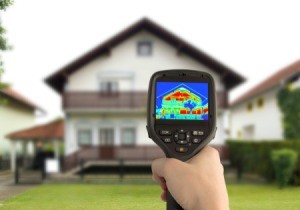 Ready for an audit? This one actually will put money back in your pocket rather than take it away. It might be time for your home to have an energy audit. Energy audits evaluate where your energy dollars go and what upgrades will allow you to save annually on fuel consumption. In order to have any home's energy usage audited, information about the structure, size, appliances (large and small), and other details are needed.
Ready for an audit? This one actually will put money back in your pocket rather than take it away. It might be time for your home to have an energy audit. Energy audits evaluate where your energy dollars go and what upgrades will allow you to save annually on fuel consumption. In order to have any home's energy usage audited, information about the structure, size, appliances (large and small), and other details are needed.
While there are many ways to have a home's energy expenditure evaluated, one way is to visit web sites such as hes.lbl.gov. This is a web-based energy audit that checks for home energy savings. This sparked my interest with the question, "How well can an on-line program evaluate my home?"
I invested over an hour just to enter all the information. The nice thing is that the program saves your information as a session number, and you can return to it in the future without reentering the information.
First, most choices are up to date, but some were lacking. What did I expect from a drop down menu? When I was asked to choose the year that my refrigerator was built, the newest choice I had was 2005. While a 2005 and a 2006 appliance are most likely similar in energy consumption, there could be some benefit for the newer model. The program also didn't provide all the choices for the type of refrigerators; there was no option for bottom freezer which is more energy efficient than a top freezer.
When my evaluation was over, my suggested list of upgrades is quoted as follows: "1. Oil boiler 2. Electric water heater 3. Dishwasher 4. Indoor lights 5. Air sealing 6. Roof insulation 7. Wall insulation 8. First Freezer 9. Boiler pipes 10. Refrigerator 11. Clothes washer 12. Floor insulation 13. Ceiling fan 14. Windows 15. Room air conditioner 16. Attic insulation 17. Cool roof." This shopping list of items gives little direction and leaves me wondering what isn't listed. I have a feeling that the calculations are little more than generic results.
The better option is to do some homework and avoid the calculators that estimate our homes' efficiencies. Discuss do-it-yourself home energy audits with your local home improvement store or do some web research about energy audits. Some hardware stores provide checklists on line or in the store which will help you do a walking evaluation. Professionals can do the same, but they can cost several hundreds of dollars. The best thing that the on-line evaluation gave me was a list of home elements to consider when looking for ways to lessen my home's energy waste.
This page contains the following solutions.
If you're paying more for utilities than you think you should, maybe a home energy audit is what you need. It can identify ways to save hundreds of dollars a year on heating and cooling.